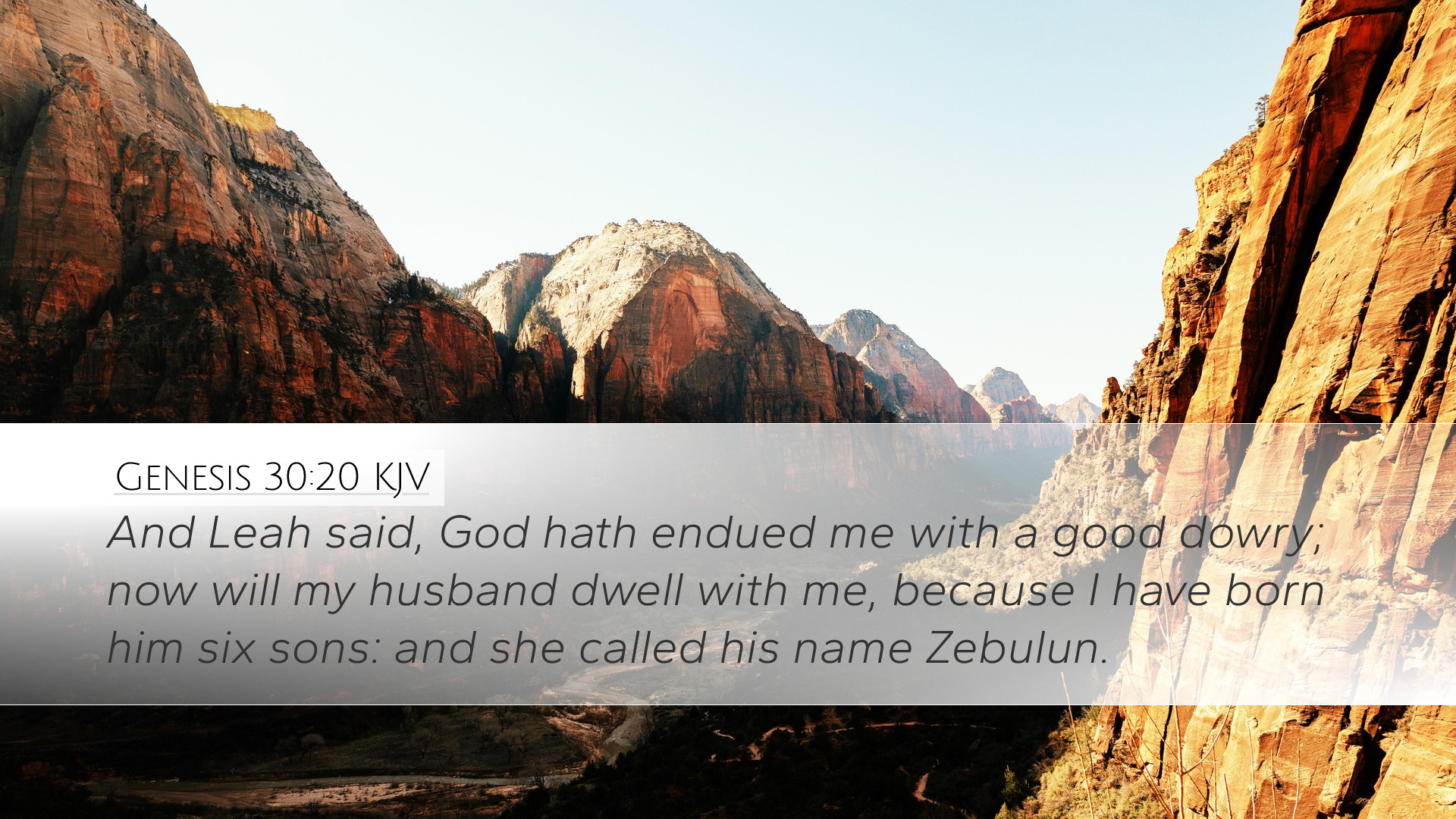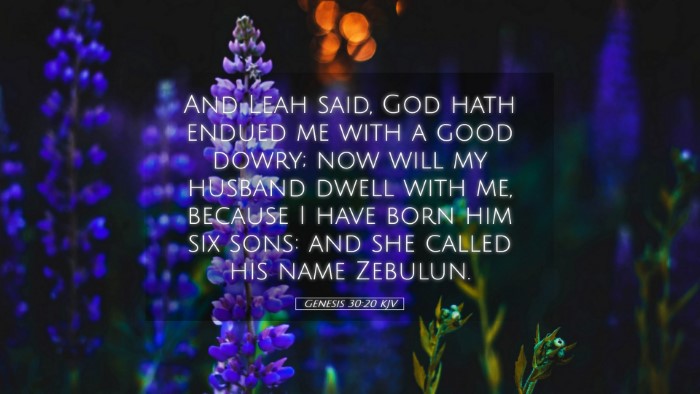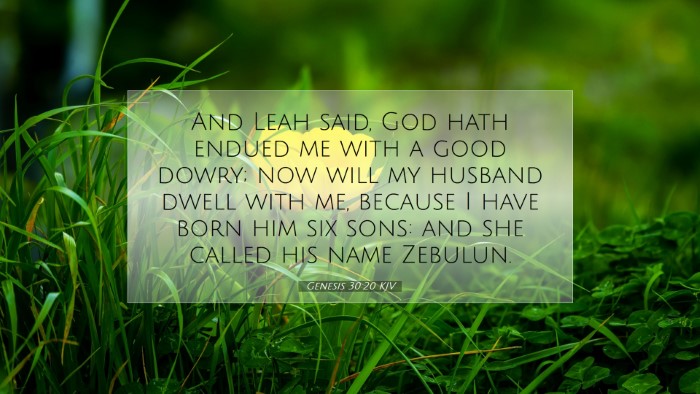Commentary on Genesis 30:20
Verse in Context: Genesis 30:20 (KJV) reads: "And Leah said, God hath endowed me with a good dowry; now will my husband dwell with me, because I have borne him six sons. And she called his name Zebulun."
Introduction
This verse narrates a significant moment in Leah's life, where she reflects on her fertility and her relationship with Jacob. It speaks to themes of rivalry, family dynamics, and the fulfillment of divine promises. In examining this verse, we can draw rich insights from historical commentaries that explore its implications in the broader narrative of Genesis.
Insight from Matthew Henry
Matthew Henry notes that Leah's declaration reflects her understanding of God’s providence in her life. He observes that while Leah experienced struggle in her marriage, she found solace in bearing children, believing that her fertility was a divine endowment.
- Divine Intervention: Leah recognizes that her capacity to bear children is not merely biological but an act of God’s grace. Her acknowledgment of divine favor highlights the biblical view of procreation as a blessing from God.
- Personal Aspirations: Henry points out Leah's motivations—the hope that her giving Jacob many sons would solidify her position in his life. Her longing for Jacob’s affection reflects the deep emotional need for recognition and love.
- Symbolism of Names: Leah's naming of her children carries significance. The name Zebulun signifies “dwelling,” symbolizing her desire for Jacob to reside with her following her contributions to their family.
Thoughts from Albert Barnes
Albert Barnes emphasizes the familial dynamics at play in this verse. He explains that Leah’s statement demonstrates her growing sense of hope amid competition with her sister Rachel, who had initially been favored in their marital context.
- Family Rivalry: Barnes discusses how the birth of Zebulun is part of Leah's continual effort to win Jacob’s love over Rachel. This reflects the intense emotional struggles within their household.
- The Importance of Sons: In the ancient Near Eastern context, sons represented legacy and social standing. Leah’s six sons not only establish her legacy but also signify her attempts to secure her husband's affection and concern.
- Gender Roles: Barnes highlights the cultural implications of gender during this period. Leah’s worth is often measured by her fertility—a societal issue that carries implications for discussions around gender throughout scriptural texts.
Analysis by Adam Clarke
Adam Clarke's commentary addresses the psychological and spiritual dimensions of Leah’s experiences. He interprets Leah’s words as indicative of a thirst for belonging and the fulfillment of God’s promises amidst her struggles in a polygamous marriage.
- Psycho-Spiritual Insight: Clarke suggests that Leah’s longing reflects the human desire for love and affirmation. Her statement about God's endowment reveals both trust in divine providence and her quest for Jacob’s heart.
- God’s Covenant Faithfulness: He emphasizes the importance of this verse in understanding the covenantal narrative. God’s blessings on Leah illustrate His faithfulness to his promises to Abraham, Isaac, and Jacob despite the interpersonal conflicts that arise.
- Reflective Naming: Clarke also discusses the significance of names in biblical text. The choice to name her son Zebulun is not just a reflection of her situation but serves as a poignant testament to her hope and desire for stability in her family life.
Theological Implications
The theological dimensions of Genesis 30:20 are profound, particularly concerning the concepts of grace, human desire, and divine purpose. The following points elaborate on these themes:
- Grace in Human Struggle: Leah’s story is a narrative of grace, portraying how God’s providence often intertwines with human conflict and desire. This reminds us of the pervasive grace that operates through human imperfection.
- True Affection and Identity: Leah’s pursuit of Jacob’s affection raises questions about identity and self-worth. Her experiences urge contemporary readers to reflect on how they seek affirmation in family and community.
- God’s Sovereignty: The verse underscores the sovereignty of God in the unfolding of histories and relationships, suggesting that human actions, though often fraught with strife, are ultimately part of a divine tapestry.
Conclusion
Genesis 30:20 encapsulates a pivotal moment in Leah's journey, reflecting her complex relationship with Jacob and her yearning for recognition and love. Through insights from prominent Biblical commentators, we see the rich tapestry of human emotion and divine providence woven throughout the text. This verse serves as an invitation for pastors, students, and scholars to delve deeper into the understanding of family, identity, and God’s grace in our lives today.


